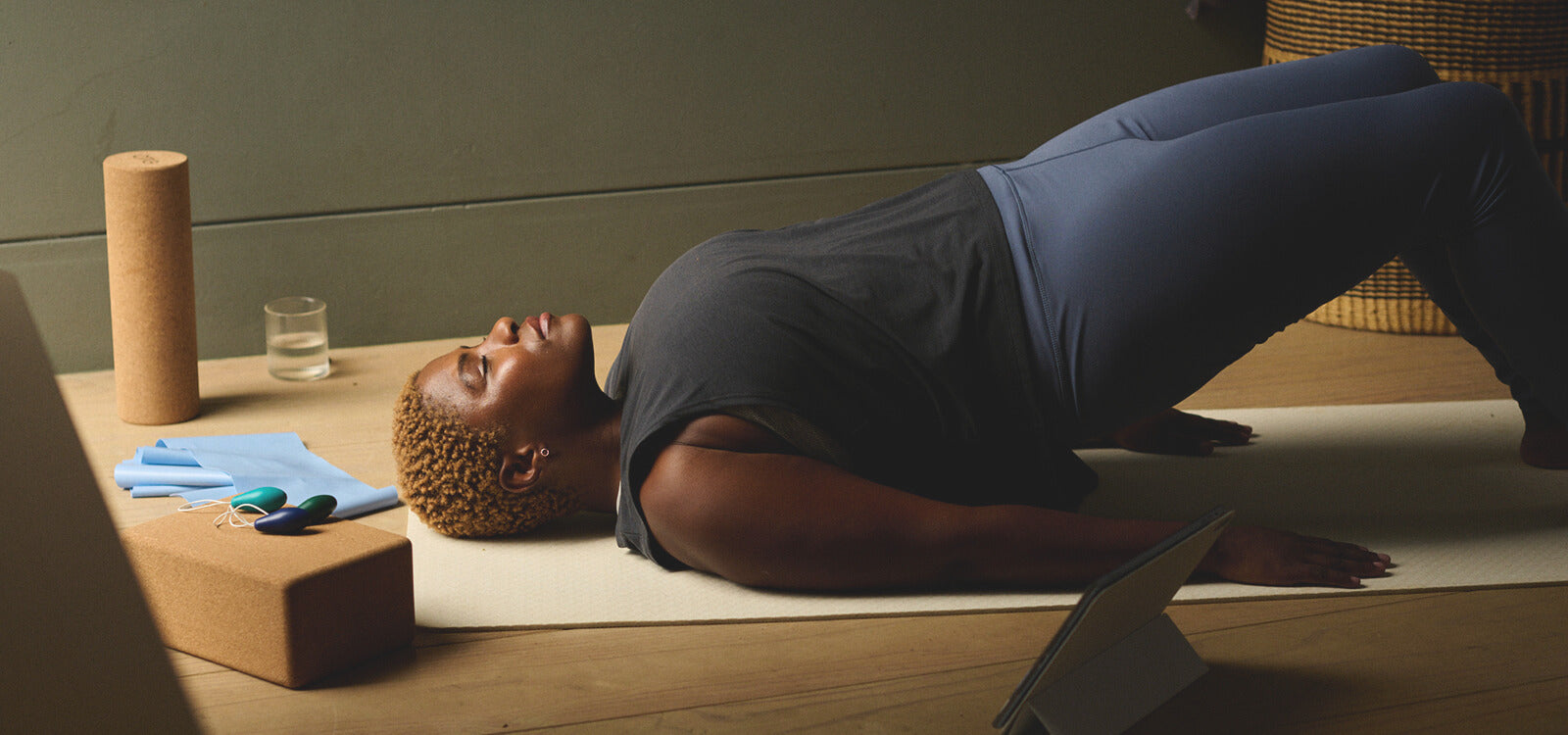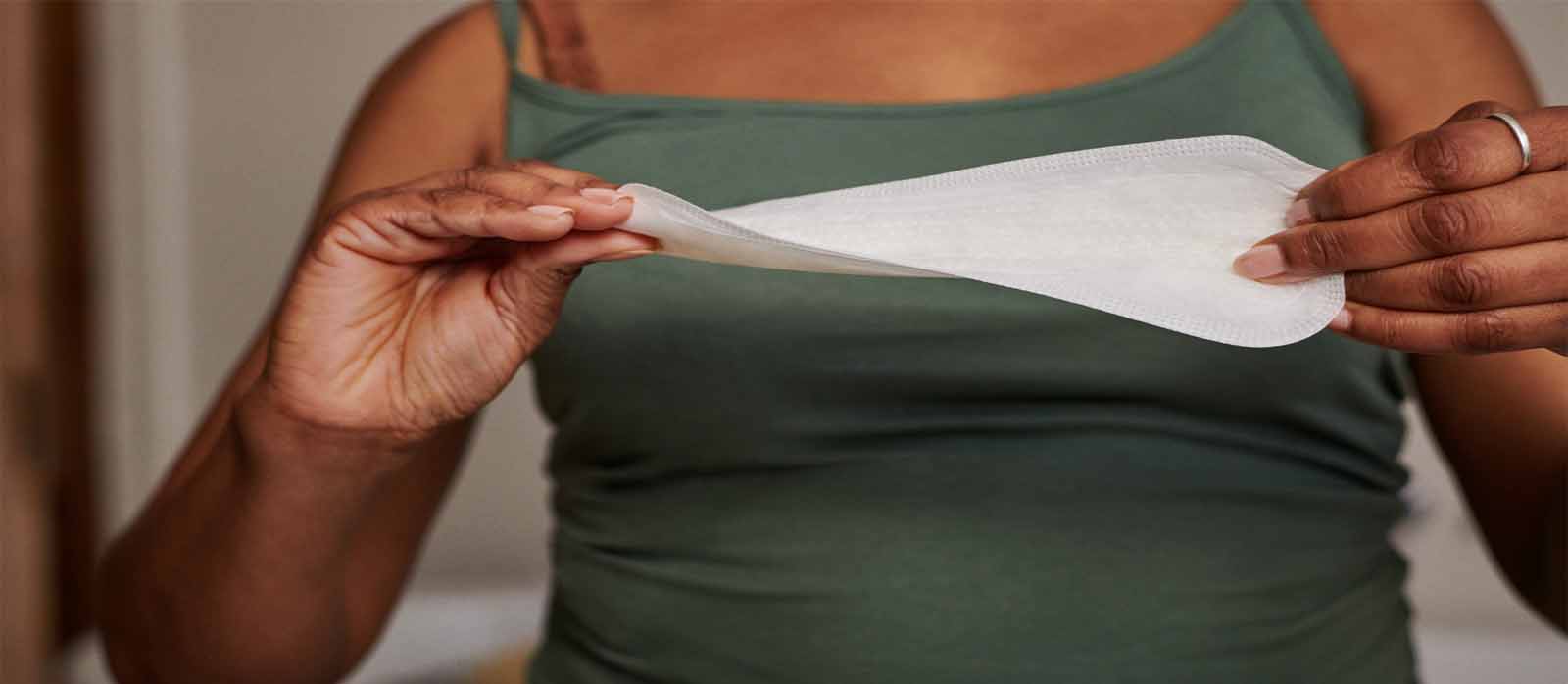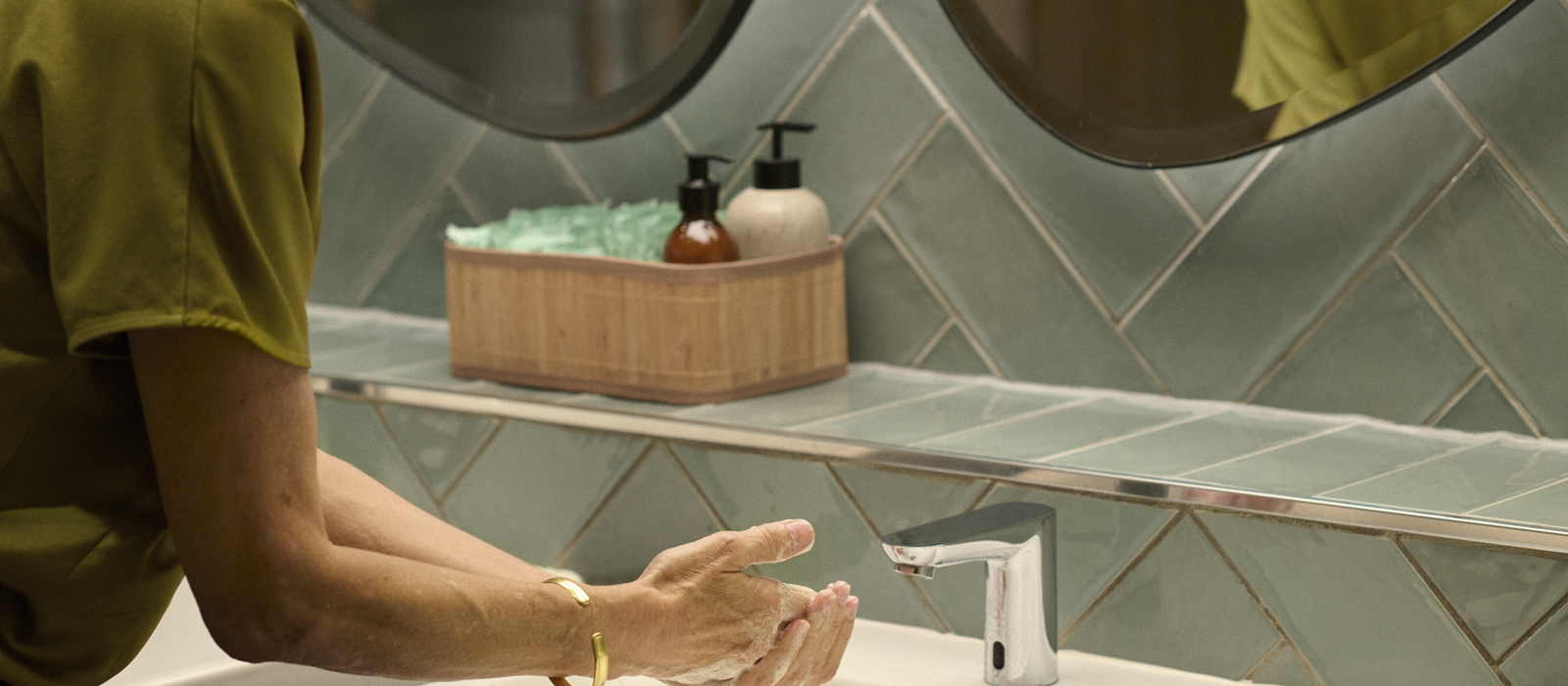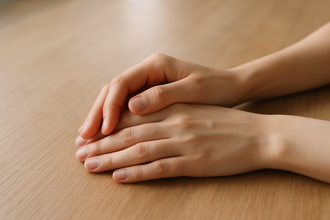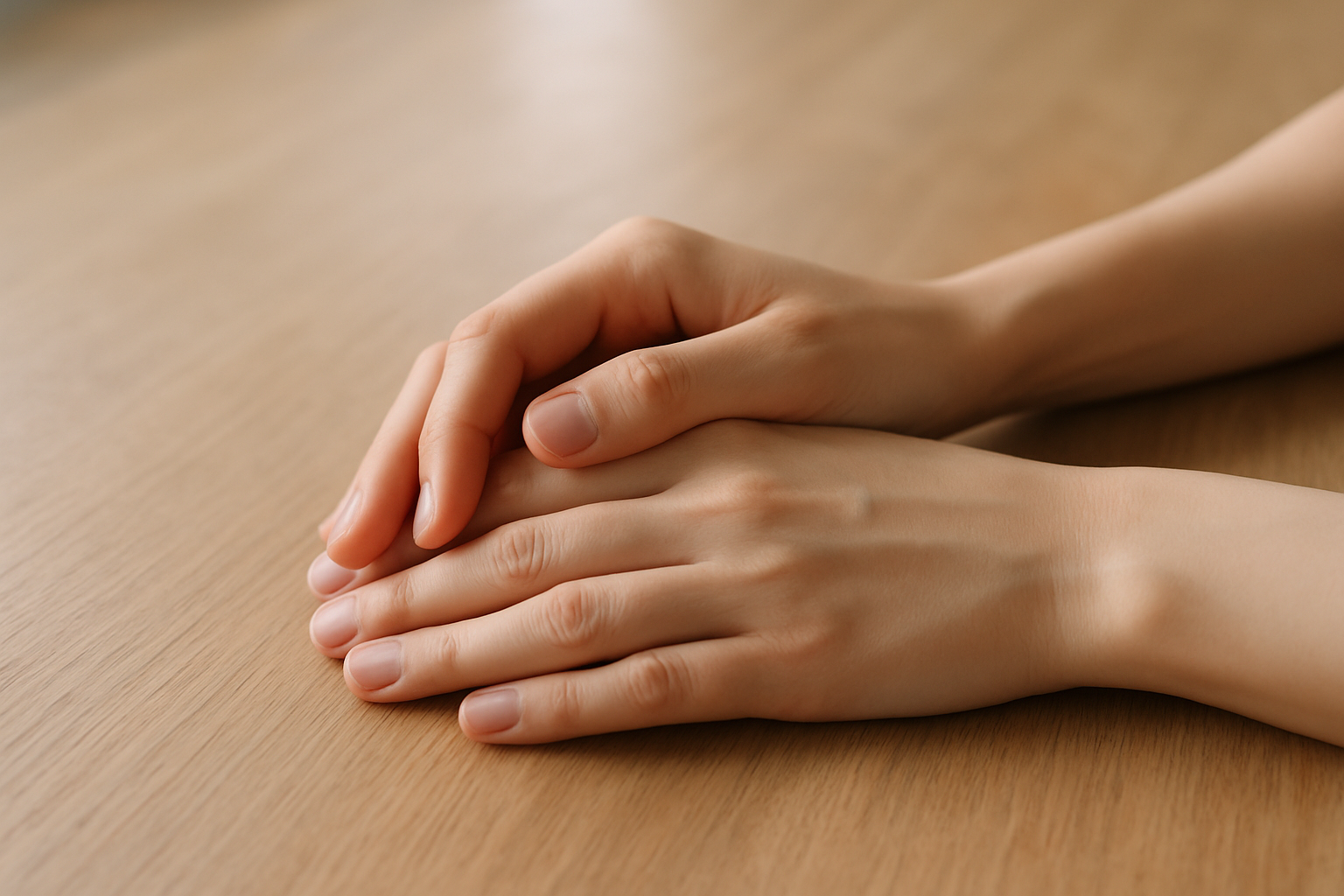Oct 24, 2025
After spotting blood in your pee, you might find yourself searching online for answers, and that might even be how you landed here. Welcome.
It's natural to feel worried, especially when sources mention something serious, like bladder cancer.
And that’s why we’re here. To explore what these changes in your pee could mean and when it may be time to see your doctor, so you have the information you need, and you can feel more reassured.
Why Urine Changes Matter in Bladder Cancer
Let’s start with the basics. The organ that holds your pee. The bladder is a balloon-shaped organ in your lower abdomen that stores urine until it’s ready to leave your body.1
When cancer develops in the bladder, it causes cells to grow in unusual ways, which can lead to changes in how your pee looks or how often you need to go to the bathroom.2
Paying attention to early signs, like blood in your urine, could make a big difference.3 Mentioning symptoms like this or changes in bladder habits could help doctors find bladder cancer earlier, when treatment may work better.3,4
It is essential to do regular bladder health screenings for your overall health and well-being. For more in-depth reading, we’ve put together some reasons why bladder cancer screening matters.
Blood in the Urine (Hematuria)
Blood in your pee is often the first and most common sign of bladder cancer.1,4 It might look pink, bright red, or even appear dark.2,4
Sometimes the blood isn't visible at all and only shows up on a urine test.3 It's easy to overlook, because it can be painless and occasional.5 That's why, if you notice blood in your pee, it's important to let your doctor know for clarity and peace of mind.3
Smoking doesn’t only affect your lungs. It can affect your bladder too. Learn more about how smoking affects your bladder health.
Other Urinary Changes to Watch For
While blood in your pee often comes early, you might also notice changes in how often, urgent, or comfortable your bathroom visits feel. These changes may look like: 2
- Polyuria and frequent urination: More frequent trips to the bathroom, especially at night.2
- Urgency: Sudden, overwhelming urge to pee.4
- Pain or burning when urinating: It could be a stinging or burning sensation that may be mild to severe.2
- Difficulty urinating or a weak stream: Trouble starting or maintaining your stream when peeing. 2
- Urinary incontinence: Leaks or unexpected accidents caused by losing control of your bladder.4
When Urine Changes Might Not Be Cancer
Changes in your pee do not necessarily mean cancer.6 Some foods, medications, or health conditions could cause similar symptoms.6,7 Some of these include:6
- Urinary tract infections (UTIs)
- Urethritis (Inflammation of the urethra)
- Overactive bladder
- Bladder stones
- Kidney stones
- Enlarged prostate
- Diabetes and bladder function
That’s why it’s important to see your doctor when you notice these changes, to rule out bladder cancer or other issues.
Advanced Bladder Cancer and Urine Symptoms
When bladder cancer advances, you may notice additional symptoms like:
- Stomach or lower belly pain6
- Swelling in the legs or feet6
- Lower back pain6
- Inability to pee6
- Bone pain6
- Fatigue4
- Blood clots in your pee8
Diagnosis and Next Steps
When you visit your doctor for a bladder cancer diagnosis, they may use different tests to confirm what’s going on. These can include:
- Urine tests1
- Cystoscopy4
- Biopsy4
- CT scan4
- Urine tumor marker tests4
Each of these helps your doctor get a clearer picture so you can move forward with the right care.
Can You Reduce Your Risk? (Prevention Tips)
While bladder cancer isn’t always preventable, there are steps you can take to help lower your risk:4
- Avoid smoking or being around second-hand smoke.
- Limit exposure to harmful chemicals by using protective gear at work if needed.
- Stay hydrated by drinking plenty of water throughout the day.
A healthy bladder is a happy bladder. There are some key things you can do make the best lifestyle changes for bladder health.
Tips for Managing Symptoms
Here are some tips to help you feel a bit better on difficult days:
- Take your medications as your doctor prescribes.9
- Eat balanced meals that feel comfortable for you.9
- Try to stay physically active if you can.9
- Prioritize sleep and make time for hobbies you enjoy.9
- Ask your doctor for support if you want to quit smoking.9
- Use incontinence products to manage leaks and stay comfortable and dry.
- Ask for help from friends and family to help conserve your energy levels.
When to See a Doctor
It’s important to see your doctor if you notice symptoms of bladder cancer that don’t improve, like:
- Blood in your pee6
- Repeated UTIs2
- Lower back pain2
You should never ignore signs like blood in your pee, so don’t wait to reach out to your doctor.6
Keeping an Eye on Your Pee is Key
Changes in your pee are one of the earliest signs of bladder cancer.1,4 Paying attention to these changes and promptly checking in with your doctor could help make a big difference.4
Remember, noticing something unusual doesn’t mean the worst; it’s a chance to get the clarity and support you deserve.
FAQs
Is blood in urine always a sign of bladder cancer?
Blood in your pee isn’t always a sign of bladder cancer.6 Other conditions, certain foods, or medications could also change the color of your pee.6,7 If you notice any changes like this, it’s best to speak with your doctor so they can find out what’s going on.
What urine changes are most linked to bladder cancer?
When it comes to bladder cancer, you may notice changes in your pee, including:
- Blood in your pee2
- Frequent peeing2
- Urgency2
- Pain when peeing2
- Unexpected leaks4
- Weak stream2
- Difficulty peeing2
When should I see a doctor about urine changes?
It’s best to see your doctor if you notice blood in your pee or any bladder cancer symptoms that persist.6 Even if the changes happen occasionally, checking in with your doctor could help you get clarity and support.
References
1. CDC. Bladder Cancer Basics [Internet]. Bladder Cancer. 2024. Available from: https://www.cdc.gov/bladder-cancer/about/index.html
2. How does bladder cancer affect urinary function? [Internet]. Acibadem Health Point - ACIBADEM Hospitals - Acibadem Health Group. 2024 [cited 2025 Sep 6]. Available from: https://www.acibademhealthpoint.com/how-does-bladder-cancer-affect-urinary-function/
3. Can Bladder Cancer Be Found Early? [Internet]. www.cancer.org. Available from: https://www.cancer.org/cancer/types/bladder-cancer/detection-diagnosis-staging/detection.html
4. Heather Hobbs. Bladder Cancer: Causes, Types, and Symptoms [Internet]. Healthline. 2017. Available from: https://www.healthline.com/health/bladder-cancer
5. Signs and Symptoms of Bladder Cancer [Internet]. Bladder Cancer Advocacy Network. Available from: https://bcan.org/facing-bladder-cancer/bladder-cancer-signs-symptoms/
6. Yetman D. Symptoms of Bladder Cancer [Internet]. Healthline. Healthline Media; 2023. Available from: https://www.healthline.com/health/bladder-cancer/symptoms-of-bladder-cancer
7. Changes in urine – When to see the doctor - Harvard Health [Internet]. Harvard Health. 2010 [cited 2025 Sep 6]. Available from: https://www.health.harvard.edu/healthbeat/changes-in-urine-when-to-see-the-doctor
8. Alex Alikiotis. How Bladder Cancer Can Lead To Blood Clots: Understanding The Connection | MedShun [Internet]. Medshun.com. 2023 [cited 2025 Sep 6]. Available from: https://medshun.com/article/can-bladder-cancer-cause-blood-clots
9. Bladder Cancer: Care Instructions [Internet]. Kaiser Permanente. 2021 [cited 2025 Sep 6]. Available from: https://healthy.kaiserpermanente.org/health-wellness/health-encyclopedia/he.bladder-cancer-care-instructions.zc1121?





































































